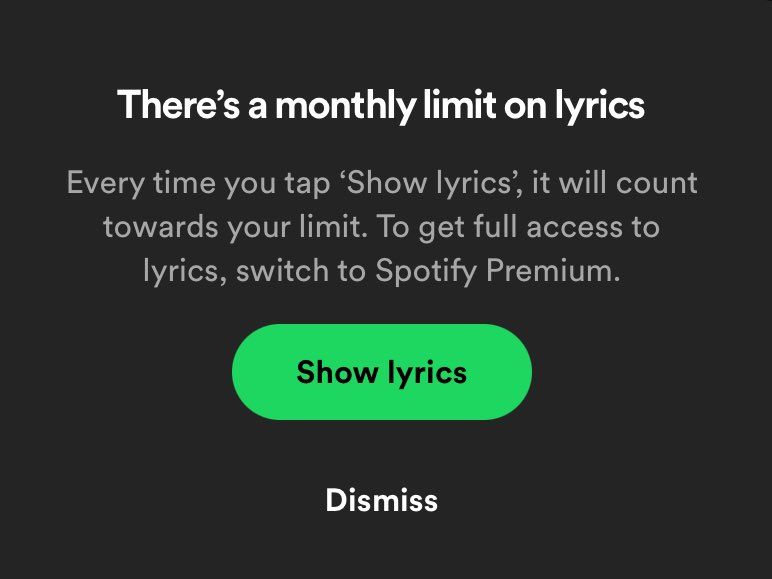Free Spotify accounts can’t play songs in any order, download music for offline play, or get the highest audio quality. There’s now another feature being removed: the ability to view song lyrics.
A new warning has started appearing for some free Spotify users, explaining that there is a monthly limit on how many times you can view lyrics for a given song. After you reach that limit, you can’t view the lyrics for more songs unless you sign up for Spotify Premium.
Spotify was testing a similar change as early as September 2023, but now it seems to be rolling out more widely. The company declined to explain the change to TechCrunch, only saying that Spotify’s features can vary over time depending on the region and device. Presumably, Spotify is preparing to roll the change out to all free accounts, but for now it’s still only affecting a subset of users.
It’s a bit bizarre to lock song lyrics behind a paywall, considering most other audio platforms with free tiers offer lyrics, including YouTube Music. The text is also usually available on third-party websites like Genius or apps like Shazam. Spotify does synchronize the lyrics to the music for some tracks, like a karaoke video, but that feature is not available on all songs.
Spotify seems to be hoping access to lyrics could push more people to Spotify Premium, but it’s not clear if that will work out. The company’s Q1 2024 earnings report revealed Spotify now has 615 million monthly active users (MAUs), but only 239 million paid subscribers. In other words, less than half of Spotify’s userbase has Spotify Premium. The price for Spotify Premium also went up in the United States and other countries in 2023, and Spotify is planning another price increase.
Spotify laid off 17% of its staff in December, after two more rounds of layoffs earlier that year, also in an effort to boost profits. The company then reported record profits in Q1 2024, and in the Q1 earnings call, Spotify CEO Daniel Ek said the job cuts “did disrupt our day-to-day operations more than we anticipated.”
Source: TechCrunch





